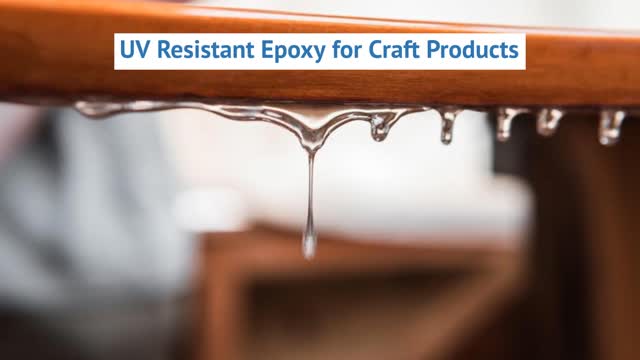Epoxy-based coatings have been an economical choice for facility owners and designers. As a versatile coating solution, epoxies provide an aesthetic appeal, durability, chemical resistance, and surface protection from corrosion for many applications. While epoxies can be an ideal solution for surface coating, they are prone to breaking down due to exposure to light, especially ultraviolet (UV) light.
Copps Industries has been delivering epoxy resin solutions since 1979. We serve a variety of industries and applications with solutions for complex and demanding applications and harsh environments. Our custom formulations, depth of experience, and extensive portfolio allow us to deliver solutions that meet your expectations. This blog will answer the question, “Is epoxy UV resistant?” We will explore methods to protect epoxies from UV light and the benefits of using epoxies to help you determine if UV-resistant epoxy is ideal for your application.
How Does UV Light Affect Cured Epoxy?
When epoxy resin is exposed to UV light, it undergoes a process called photodegradation. The energy from the UV radiation breaks down the cured epoxy, which causes it to become weaker, discolored, and brittle.
One of the primary effects of UV exposure on cured epoxy is a reduction in its clarity and glossiness. Over time, the epoxy may start to appear cloudy, hazy, or yellowed. This is often called “ambering,” and it can be particularly noticeable on light-colored or transparent surfaces.
In addition to reducing the visual appeal of epoxy, UV exposure can also weaken its physical properties. The cured epoxy may become chalky or powdery, indicating that it has lost some of its strength. This can make it more prone to cracking, peeling, or flaking, especially if it is subjected to mechanical stress or environmental factors like moisture and temperature changes.
Prolonged exposure to UV radiation can cause irreversible damage to cured epoxy, leading to structural failure and other issues. To prevent this, it’s important to take steps to protect epoxy surfaces from UV light, such as using a UV-resistant topcoat or keeping the epoxy out of direct sunlight whenever possible.
How Can Epoxy Be Made UV Resistant?
As epoxies are not naturally UV resistant, manufacturers commonly add UV-absorbing additives to the epoxy formulation. These additives work by absorbing the UV radiation before it can penetrate and degrade the epoxy resin and hardener. By incorporating these additives, epoxy can withstand exposure to UV light for longer periods without showing significant degradation.
Another way to protect epoxy surfaces from UV damage is to use a UV-stable topcoat. This coating can be applied over the cured epoxy to act as a barrier between the epoxy and the UV radiation. The topcoat should be designed specifically for use with epoxy and should be rated for outdoor use if the surface will be exposed to direct sunlight.
The duration of UV protection for epoxy depends on the type and quality of the UV-resistant coating used, and factors such as UV exposure, climate, and coating quality can further affect the duration of protection. Regularly applying maintenance coats of UV-resistant varnish is important, with the frequency depending on the level of UV exposure and coating quality. Reapplication every one to three years, or as needed, is recommended for optimal protection.
In addition to using a UV-resistant coating or adding UV-absorbing additives to the epoxy formulation, there are other ways to protect epoxy surfaces from UV damage. For example, keeping the epoxy out of direct sunlight and using shading devices, such as awnings or umbrellas, can significantly reduce UV exposure. Regular cleaning and maintenance of the surface can also help to prolong its lifespan and protect it from UV damage.
Protecting epoxy from UV damage is essential to ensure its longevity and maintain its appearance. By choosing a UV-resistant coating or adding UV-absorbing additives to the epoxy formulation, and taking appropriate measures to minimize UV exposure, it is possible to protect epoxy surfaces from UV damage and extend their lifespan.
Advantages of Using Epoxy
While traditional epoxy is not UV resistant on its own, epoxy resins provide the following advantages:
- Durable: Epoxy resins offer good stability and durability, offering weather and chemical resistance.
- Easy to Apply: Epoxy resins can be applied quickly using a relatively simple process.
- Gap Filling: Epoxies can fill surface gaps to provide a smooth finish.
- High Strength: Epoxy resins provide a fast and strong adhesive bond to various surfaces and deliver long-term resilience and hardness.
- Versatile: Epoxy resins can be used in almost any surface coating application and can be a substitute for various other materials.
- Shrink Resistant: Epoxies are not prone to shrinkage and will not become loose once they settle properly with less than a 1% probability of shrinkage.
- Thermosetting: Once fully cured, epoxy resins will maintain their solid state and remain unaffected by high temperatures, without any melting or softening.
- Underwater: Epoxy resins are waterproof and can be used for underwater construction.
Countertop & Crafting Epoxy Resin From Copps
Epoxy resins are a preferred surface coating material for residential and commercial applications. They offer a variety of benefits, including strength, resistance to water and high temperatures, and extreme versatility. Traditional epoxies can degrade under prolonged UV light exposure and require additives or coatings to inhibit permanent photodegradation from UV light.
Copps UV-resistant countertop and crafting epoxy is easy to use and ideal for every user, from beginners to advanced artisans. Our UV-resistant craft epoxy comes in a simple, two-part system. Its self-leveling properties make it easy for users to get a perfect finish the first time. It hardens to a glass-like, crystal-clear finish to deliver lasting beauty to any countertop or crafting project. Copps has a variety of new epoxy systems with UV protection for every application. Contact us or request a quote for your UV-resistant epoxy solution.




 Request Quote
Request Quote 